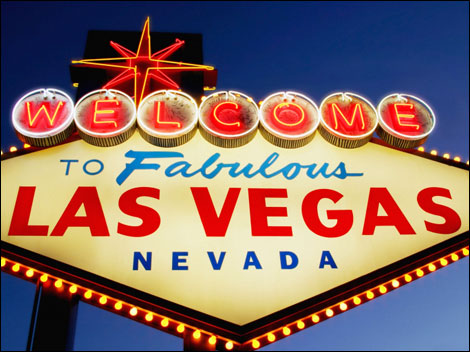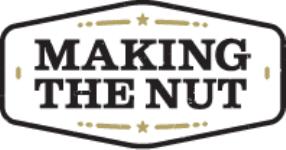Punting Profile: the Computer Group take Vegas
It is the early eighties. Bon Jovi are new, raw, and rocking. Leg warmers are in.
Computers are in their infancy with the personal computer still a decade away. In these times, computing technology lives in the rarified domain of mathematician and the scientist.
The city is Las Vegas.
And a young man named Michael Kent has just moved in.
Kent was a mathematician who had been developing technology for nuclear submarines for Westinghouse when he decided to try his hand at sports betting. Fascinated by computers, Kent had developed a program to measure the strengths and weaknesses of his weekend softball team. He used this as a basis for a program that would forecast football lines, a program he tested and retested for seven years, ironing out the kinks and strengthening its accuracy.
The program measured and weighted every variable in a football game: the value of third down conversions, of home-field advantage and even the distance of a road trip were accounted for. Such nuance, sophistication and mathematical ordering in betting were revolutionary at the time.
So Kent put it all on the line. It was a tough move, however. Kent had to enter all the information into his computer from various newspapers every morning and then had to spend the rest of the day and night finding the best lines. He was betting every game where he had a 1 ½ point advantage, which ensured the action was constant. Kent struggled with the stress, struggled with the swings and struggled with the large amounts of cash he had to move.
Though he had managed to turn around some early football losses and was making money on college hoops, Kent was burned out and was keen to move on and return home. It was then that Dr Ivan Mindlin came into the picture and changed the world of sports betting forever.
Mindlin had been tinkering with computer handicapping and so when Kent encountered him, they felt a fraternal bond. That bond would, many years later, bring about the downfall of what became known as the Computer Group.
It was a bond of unquestionable trust – though only from Kent’s perspective.
From the eyes of Mindlin, Kent was someone who could be used to turn a buck into real money. Big money. The agreement was that Kent would work the computer while Mindlin would move the money and get the bets on. The Computer Group was officially formed. Kent’s brother John soon joined him in working through the program. The brothers Kent were the only ones who ever had any interaction with the heart of the betting scheme: the computer – and yet in the end, were only pawns.
The going, initially, was good. This was a time when computers were simply not used for handicapping, a time when information dissemination was slow and a time when the Vegas lines were extremely weak by today’s standards. Kent’s revolutionary approach to betting and Mindlin’s avarice created the perfect storm. Everyone was happy.
Kent and Mindlin shared in over $100,000 profit in 1980. Mindlin used the information he receive from Kent to clear a gambling debt with two New York gamblers who took the constant stream of computer selections as payment. Kent was oblivious.
The size of the Computer Group continued to grow: over time it was believed that hundreds of people in nearly every state of the United States joined the Computer Group. All of this, however, was unbeknownst to Michael Kent. He trusted Mindlin implicitly and Mindlin never let on the truth. By the mid-eighties, Mindlin was taking full credit for the now famous Computer Group. The Group had been financially murdering bookmakers, both legal and illegal, across the country. With a network of agents across the country as well as huge sums of cash, the Computer Group bet hard, manipulated lines, gobbled up wrong prices and won big.
In 1984, after some years of very big profits that saw the Group winning $1million in a good week of college football and officially raking in nearly $15 million in the previous financial year, a man named Billy Walters was invited to join. Walters was a Kentuckian who had placed his first bet on a pool game at the age of five and had gone broke many times since. He once lost his house shooting nickels. In 1982 he decided to leave his business interests and his life in Louisville to try his hand as a pool hustler, a golf player, a poker hound, a horse bettor and a sports handicapper in Vegas.
By 1983 Walters was placing bets for Dr. Mindlin, shifting money and finding the right lines. Walters didn’t officially share in the Computer Group profits, but nonetheless won big using the information provide by Kent’s computer. Walters was fearless and had the street smarts to be able to get set for whatever he wanted. This was the first time Walters was winning consistently and he decided to hang onto his money with wise investments.
Walters was admitted as a fully-fledged member of the Computer Group in 1984, his reputation having risen like a phoenix since he arrived in town. He was soon in charge of pushing cash and manipulating the markets and the Computer Group profits continued to roll in. Walters had become a millionaire, Mindlin had become famous, Kent basked in the glory of his program and thousands across the United States had gotten very rich, very quickly. The Computer Group was the talk of Vegas, as influential as any athlete, owner or administrator on the landscape of American sports. Even Sports Illustrated published an article on the group.
The good times, however, were about to end. The Computer Group would implode due to external stress and internal personality clashes. Even the huge sums of money won by the Group, estimated to be in the vicinity of $20 million a year (and that does not even begin to account for the many millions wagered from those with access to the information not on the books of the official Computer Group), could not insulate the group from the pressure.
The FBI had taken an interest in the activities of the Group and launched a series of raids, eventually seeing the key players arrested. The FBI, despite evidence to the contrary, believed the group was running an illegal bookmaking operation for the Mafia. Though all indicted on charges were acquitted in nearly record time, the Computer Group was dead. The money, the dominance, the influence was all gone.
During this period, Michael Kent had finally gotten wind of the size of the Computer Group and was embittered with Dr. Mindlin for seemingly not being above board in their financial deals. Kent had believed it was a small operation, with only a few family and friends involved. In truth, the Group numbered in the thousands. Kent got out and took his program with him, starting his own (legal) sports betting company.
Today every bookmaker has a handicapping program and so do most professionals. Feel and touch are no longer the tools of the full-timers.
The Group foresaw the future in computers and reaped the rewards while the world battled to catch up. What is golden rarely lasts forever though and in the end human nature bought about their downfall. The brilliance, audacity and sheer influence of the syndicate, however, will never be forgotten. The Computer Group will always live on in the pantheon of greatness, like all true pioneers.

